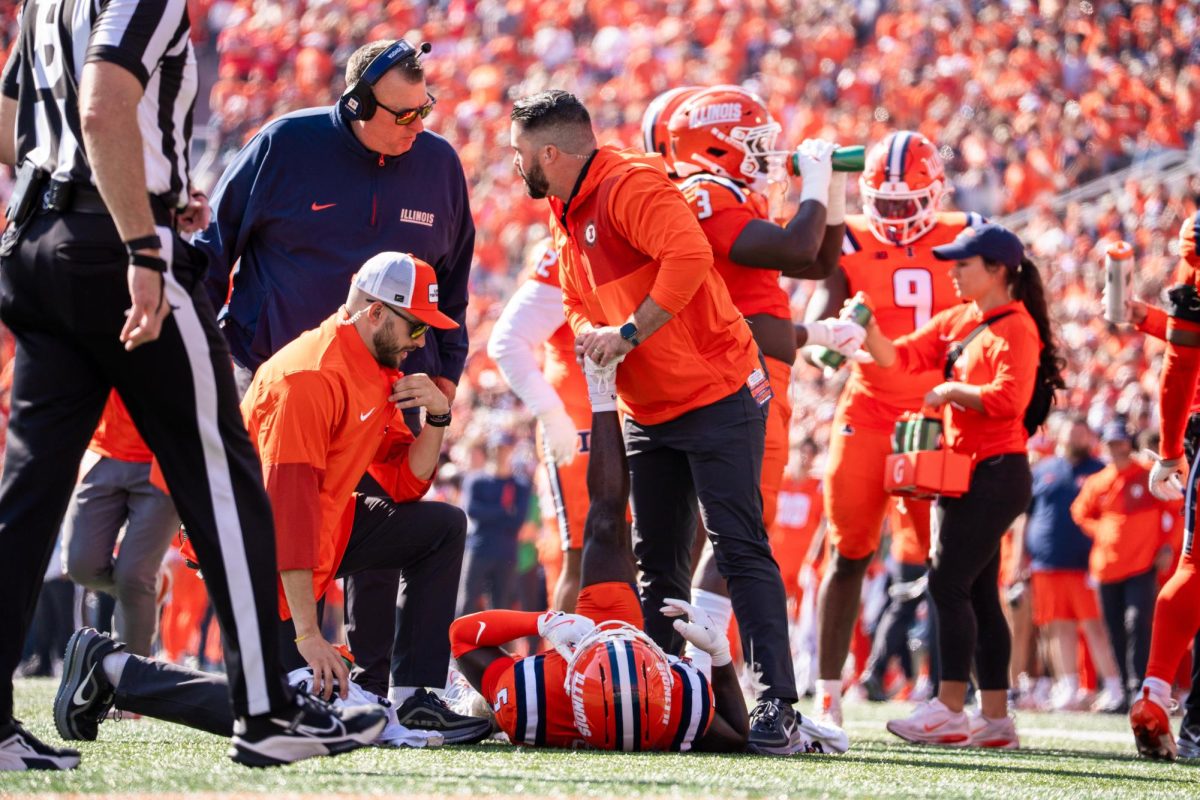Tuesday marked the first day of an Electronics and Sustainability Symposium at the University’s I Hotel. The symposium is a two day conference, and features different speakers from companies including Dell and Wal-mart.
The event is sponsored by the Sustainable Electronics Initiative, an organization through the University that is focused on developing and implementing more sustainable systems for recycling and remanufacturing electronic devices.
“The conference has pulled together people representing most of the commercial, academic and nonprofit entities that are necessary to come up with a viable solution to the e-waste problem,” said John Marlin, acting director at the Illinois Sustainable Technology Center.
Membership of the Sustainable Electronics Initiative includes academic professionals, non-profit organizations, government agencies, manufacturers, designers, refurbishers and recyclers. This symposium is focused on how to deal with e-waste in a more environmentally conscious fashion.
“It’s really interesting to work on this process together in trying to solve the current electronics problems,” said Aida Williams, process engineer and member of the sustainable technology center.
Get The Daily Illini in your inbox!
Jeff Omelchuck spoke on behalf of the Green Electronics Council, a program that encourages sustainable and environmentally friendly products. The council is primarily responsible for managing EPEAT, an electronic product environmental assessment tool.
EPEAT is a system that helps purchasers compare, contrast and choose products based on their environmental characteristics. Omelchuck said the EPEAT registry is a tool for manufacturers to represent the environmental performance of their products to purchasers.
The system includes environmental information about desktop computers, laptops, workstations and computer monitors. Products that comply with 23 required environmental performance criteria are eligible to be registered in EPEAT by their manufacturers.
Manufactureres including Toshiba, Apple, Panasonic, Sony Electronics and LG Electronics have some of their products registered through EPEAT.
Mike Tibbs, senior director of compliance for Wal-mart, spoke about the need to extend the use of electronic devices by providing refurbishing and repairing services. He also spoke about the need to reduce packaging for products, including a child’s car seat, because box packaging is often removed in stores and later discarded. Tibbs discussed the idea of shrink-wrapping products like these in order to reduce waste.
William Bullock, professor of industrial design and affiliate faculty with the Illinois Sustainable Technology Center, said he was glad to have Tibbs speak at the symposium.
“This problem of e-waste is an increasingly serious problem of global significance,” Bullock said. “And due to the complexity of it, it’s going to require experts that represent all facets of the problem to help solve the problem.”
Marlin said the goal should be to try to get companies that make components for electronic products to select raw materials that can be re-used and redesigned.
He added that consumers should be able to replace the components and not have to throw away the whole computer.





